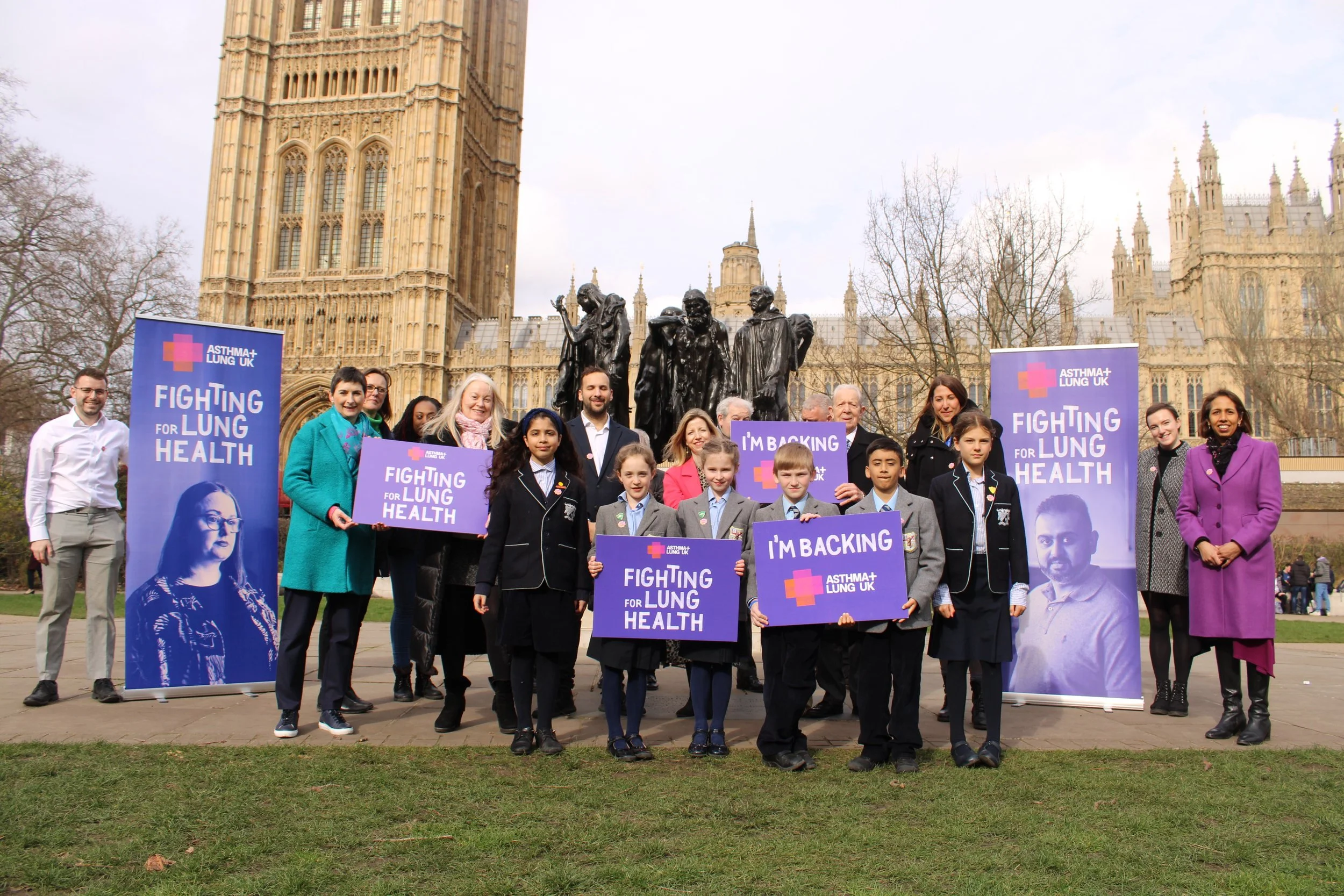Urgent appointments and your child
Debby Waddell, Asthma + Lung UK Respiratory Nurse, shares tips on how to ask for an urgent appointment when your child needs one.
When your child is ill, it’s natural for a parent to be worried. And if your child has just been diagnosed with a lung condition, or is waiting for a confirmed diagnosis, it can make you even more concerned and perhaps unsure of how to approach the situation.
If you’ve already recognised that your child’s symptoms are getting worse and that they need an urgent appointment, it’s vital to get this across when speaking to reception staff at your GP surgery.
What’s the difference between a routine appointment and an urgent appointment?
A routine appointment should be used for general health questions, diagnosis, and the monitoring of conditions. They are also known as ‘non-urgent appointments’ and can be booked several weeks ahead. A routine review appointment is usually longer, on average about 20 minutes, as it’s classed as a long-term condition review. If your child has a few long-term conditions, your GP or other health care professional may review all their conditions together in one appointment, to make things easier. If this is the case, your appointment may be much longer.
An urgent appointment means you will get an appointment on the same day you have asked for one. The purpose of urgent appointments is to deal with important health issues that need immediate attention but are not life-threatening.
However, if you have been offered a same-day urgent appointment and your child’s symptoms are getting worse in the meantime, don’t wait for this appointment. Call 999. Read more about when to call 999 about your child’s breathing and seeing a doctor about your child's breathing.
How do I get an urgent appointment for my child?
Sometimes parents struggle to get across to reception staff how unwell their child is and what help they need. The first thing to remember is that you are not bothering anyone. Feel confident in saying that you are worried and in what you are asking for. If your child’s symptoms are getting worse, you need to ask for an urgent appointment.
It’s useful to have a list of symptoms written down, so you don’t forget them during the phone call. Say the symptoms you’re most worried about first. Use language that gets across how serious your child’s symptoms are. You could say, “I have a sick child and I’m worried they will have an asthma attack or a flare-up if they’re not seen today”.
If your child has been to A&E or been admitted to hospital because of their lung condition in the past year, make this clear. You could say something like, “My child’s lung condition has been bad this year and they were in hospital with it xx months ago. I’m worried that if they’re not seen they will need to go to hospital again”. If your child has needed steroid tablets for asthma in the past year, it can be a good idea to say that you’re worried they might need them now, which is why you need to see a GP.
Keep calm during the phone call and focused on what you want to get out of the conversation, which is to get your child seen by a health care professional.
It can be difficult if reception staff tell you they don’t have any urgent appointments and they may say that if your child’s symptoms get worse, or they have an asthma attack or a flare-up, to take them to A&E. Many parents will just accept this and settle for a routine appointment, but it’s important to be firm that your child needs to be seen urgently. If this happens to you, you could say, “If my child is treated now, it may not get worse and become a flare-up or an asthma attack”. This will help practice staff see the urgency of your child needing to be seen and understand that acting now could stop them getting worse.
If you’re refused an appointment
If they still refuse, ask them what you should do. Say that you’re following your child’s action plan, which was given to you by your doctor, and that it clearly states that you should seek medical attention. Then say that if you can’t get an urgent appointment, you will need to seek medical attention elsewhere.
If you’re still being refused an appointment, contact NHS 111, tell them your child needs medical attention and that your practice can’t offer you an urgent appointment. Again, be clear that you’re following the advice on your child’s self-management or asthma action plan. You’re likely to feel frustrated if you’ve reached this point, but it’s important to keep calm and focused. The most important thing is to get your child seen and checked.
If your child goes to the hospital or is booked into a 111 service because of their lung condition, make sure you book a review at your local practice for 48 hours’ time. This is to check that your child is getting better and a chance to update their action plan. You might want to use this as a chance to explain that you were following the advice on your child’s action plan but couldn’t get an appointment. You could also write a letter or an email to your practice, raising your concerns.
How a self-management plan or asthma action plan can help
Having a self-management plan or asthma action plan is very useful, as it has all the information you need in one place, so you can look after your child’s lung condition well. If your child’s self-management or asthma action plan says to contact your GP surgery for an urgent appointment if their symptoms get worse, it’s important to say this when on the phone to practice staff.
Read more about support for your child if they have a lung condition here
We empower people with lung conditions to make changes that can be transformative.
Please donate now to help make sure people with lung conditions can live well this year.








